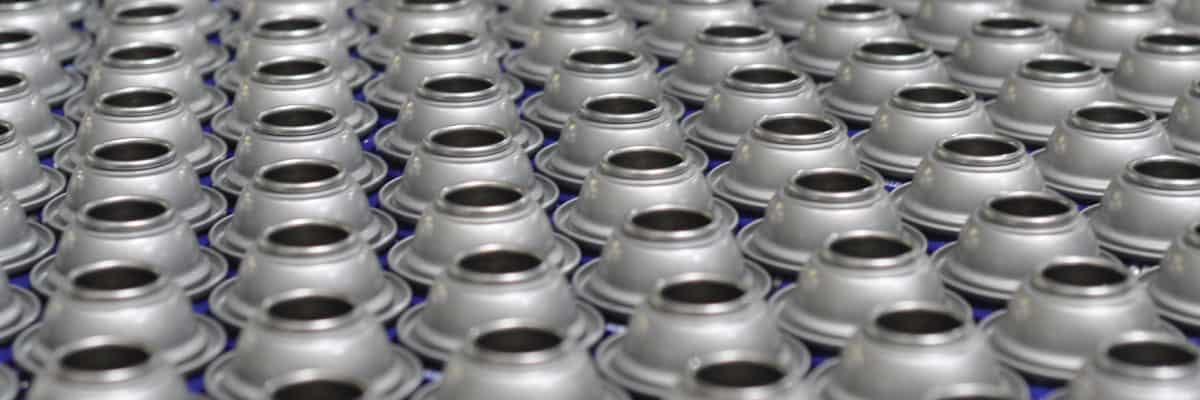O-Rings for Food Safe & Medical Applications

Global O-Ring and Seal Offers a Wide Variety of FDA-Compliant Products.
There is often confusion around the terms FDA-Grade, FDA-Compliant, FDA-Certified, etc. The Food and Drug Administration does not “certify” o-rings as a general policy. Rather, they publish guidelines to specify ingredients that can be used in rubber parts that may come in contact with food. It is then the manufacturer’s responsibility to certify that the parts they provide are “FDA-Compliant” by issuing a certificate stating such. To read more about medical-grade o-rings, click here.
What Does It Mean for a Rubber O-Ring to Be FDA-Compliant?
FDA-Compliant means passing the Code of Federal Regulations, specifically CFR21.177.2600, which covers dry foods, liquids, and fatty foods. Dry foods must meet formulation and curation criteria under conditions of good manufacturing practice as appropriate for repeated use. Liquids must meet extraction criteria of not exceeding 20 mg/sq inch in distilled water. Finally, fatty foods must meet additional extraction criteria of not exceeding 175 mg/sq in n-hexane.
Beyond meeting the dry, liquid, and fatty food extraction criteria, there are several other nuances to understand.
Material Source: FDA-compliant o-rings must be made from raw materials sourced from FDA-approved suppliers. This ensures the traceability and safety of the raw materials used in production.
Manufacturing Process: The manufacturing processes for FDA-compliant o-rings must adhere to strict cleanliness and contamination prevention standards. This can include using dedicated equipment, clean rooms, or specific handling procedures to avoid potential sources of contamination.
Post-Production Treatments: Any post-production treatments or finishes, such as surface treatments or lubricants, must also be FDA-compliant.
Continuous Compliance: Compliance isn’t a one-time event. FDA-compliant o-rings must be regularly tested and reviewed to ensure ongoing compliance, as regulations can change over time.
The Importance of FDA Compliance
Adhering to FDA compliance is critical. The FDA establishes standards to ensure products that come into contact with food or drugs are safe and free from harmful contaminants. Non-compliance can lead to health risks, legal consequences, and harm to a company’s reputation.
- Regulatory Audits: Non-compliance can lead to disruptive and costly audits or inspections by regulatory bodies. Regular audits could be part of the business operations for industries relying heavily on FDA-grade o-rings.
- Market Access: Compliance with FDA standards can be a prerequisite for access to certain markets or clients. Without it, you may be limiting your business opportunities.
- Consumer Trust: Compliance fosters trust with end consumers who may seek out products explicitly stating the use of FDA-compliant components. This could be particularly relevant in sectors like the food industry, pharmaceuticals, or baby products.
- Environmental Impact: FDA standards also consider environmental impact. By adhering to these standards, businesses contribute to sustainable and responsible practices.
Material Properties of FDA-Grade O-Rings
Understanding the properties of FDA-Grade o-ring materials is essential. Some common FDA-compliant materials include:
|
|
|
|
|
|---|---|---|---|
| Silicone | Excellent resistance to ozone, sunlight, and aging. | $$ | -76 to +437 |
| Viton (FKM) | Renowned for their chemical resistance and durability. | $$$ | -15 to +450 |
| Nitrile (Buna) | Excellent resistance to petroleum oils, water, and some hydraulic fluids. | $ | -40 to +212 |
| EPDM | Ideal for outdoor applications due to their excellent resistance to ozone, UV radiation, and weathering. | $ | -67 to +257 |
| Teflon FEP Encapsulated | Exceptional chemical resistance. Ideal for applications requiring non-stick properties. | $$$$ | -76 to +428 |
| Teflon PFA Encapsulated | Improved stress crack resistance. Ideal for applications demanding high thermal stability and chemical resistance. | $$$$ | -76 to +500 |
Global O-Ring and Seal offers more products in FDA-Grade than listed above, including FDA-Grade Cord compounds, so please fill out the form on this page or call us with any special FDA-Compliant product requests. Additionally, our FDA Declaration of Compliance can be viewed here.
Applications of FDA-Grade O-Rings
FDA-Grade o-rings are used in industries where sanitation and safety are paramount. Here are some common applications:
- Food & Beverage Industry: Used in food processing and beverage dispensing systems to ensure the purity and safety of consumables.
- Pharmaceutical Industry: Essential in pharmaceutical manufacturing and processing equipment to prevent contamination and ensure the efficacy of medications.
- Dairy Industry: Ideal for equipment used in milk and cheese production due to their ability to meet strict sanitation standards.
- Cosmetic Industry: Used in producing cosmetics and personal care products to prevent contamination and ensure product safety.
Note: The Food & Drug Administration does not individually approve specific products to CFR 21.177.2600. The manufacturer of the completed FDA-Grade product is the designated entity to furnish an FDA certificate as evidence of its compliance. Furthermore, while a manufactured part may be FDA-grade material, one should not infer that the part fits its intended technical application.

 English
English  Español
Español  Français
Français  Português
Português  Deutsch
Deutsch  Italiano
Italiano  Русский
Русский  中文
中文  日本語
日本語  العربية
العربية  हिन्दी
हिन्दी